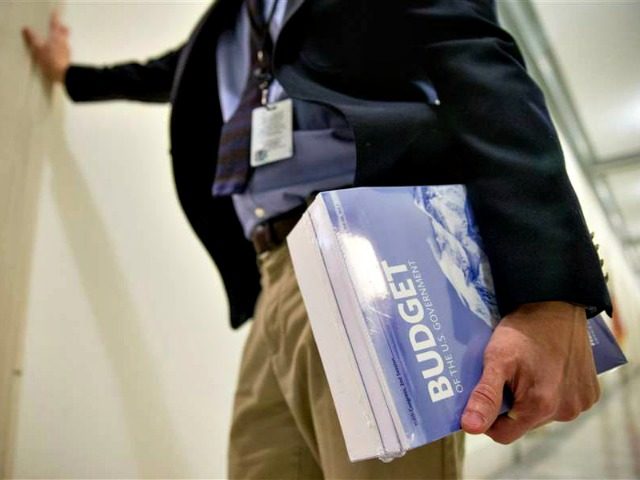Capitol Hill conservatives are preparing for a fight over funding the federal government after the current funding legislation expires Dec. 9, as President Barack Obama and Senate Minority Leader Harry Reid (D.-Nev.) take their last bite from the apple before both men return to private life.
Much of the anxiety for Capitol Hill conservatives is that they fear Republican leaders will use the lame duck session to pass many of the president’s priorities and treat his final budget bill as a last chance to grant favors to lobbyists that would not pass muster under President-elect Donald J. Trump.
In the continuing resolution passed at the end of September, Republican leaders went along with the president’s handover of the Internet from federal government control to an international consortium, along with fully funding the Patient Protection and Affordable Care Act, accepting Syrian refugees, Sanctuary Cities, and Planned Parenthood. The budget agreement also busted the budget caps set in the Budget Control Act of 2011, which in the first days of the Tea Party seemed like a significant first step, but five years later looks like the Tea Party’s highwater mark.
The first warning sign going into the next budget fight was the expansion of the new continuing resolution from 300 pages to more than 1,000 pages.
The second warning sign is that Republican leaders are looking to push for a longer term CR that would carry on government funding until just before the Memorial Day recess–a move the would prevent Trump from having a direct impact on the federal government until Congress is in the middle of its legislative proceedings for the fiscal 2018 budget. A CR that expires in March or sooner would give the new president the chance to reshape the government soon after his administration is settled in their offices.
Although, the GOP controlled both chambers, there is no way to avoid the influence of Obama nor Reid.
The president has not weighed in yet with his priorities for the new CR, except for his effort to change the rules at the Export-Import Bank that would make it easier for the federal agency to more easily guarantee larger loans. Reid is likely to include tax breaks for green energy projects and other political paybacks to his allies.
After the October 2013 partial shutdown of the federal government, GOP leaders have renounced the government shutdown as an option. The aversion to confrontations with Obama was such that in October 2015, Republicans agreed to suspend the ceiling on federal debt until March 2017, lest a fight with the president over raising the debt ceiling lead to a shutdown.
In the Senate there are typically two votes on a motion, one to end debate and the second to decide on the actual motion. To preserve the atmosphere of deliberation and debate, as well as to give some protection to minority factions, Senate rules require 60 votes to end debate. The filibuster is the effort to extend debate so as to delay or block the second vote on a bill. The current Senate has 54 Republicans, 44 Democrats and two Independents, who caucus with Democrats.
Reid, who did not seek reelection in 2016, was the go-to excuse used by House GOP leaders when they told conservatives in the House Republican Conference why their agenda items were set aside. Reid’s decision to remove the filibuster for presidential appointees in July 2013 is a decision that will haunt Senate Democrats when the confirmation votes come around for Trump’s appointments. But, the filibuster is still part of the Senate Rules for legislation.
A Reid filibuster and or an Obama veto still stand as possibilities, and whether the federal government gets its new budget largely lies in the hands of these two men.

COMMENTS
Please let us know if you're having issues with commenting.